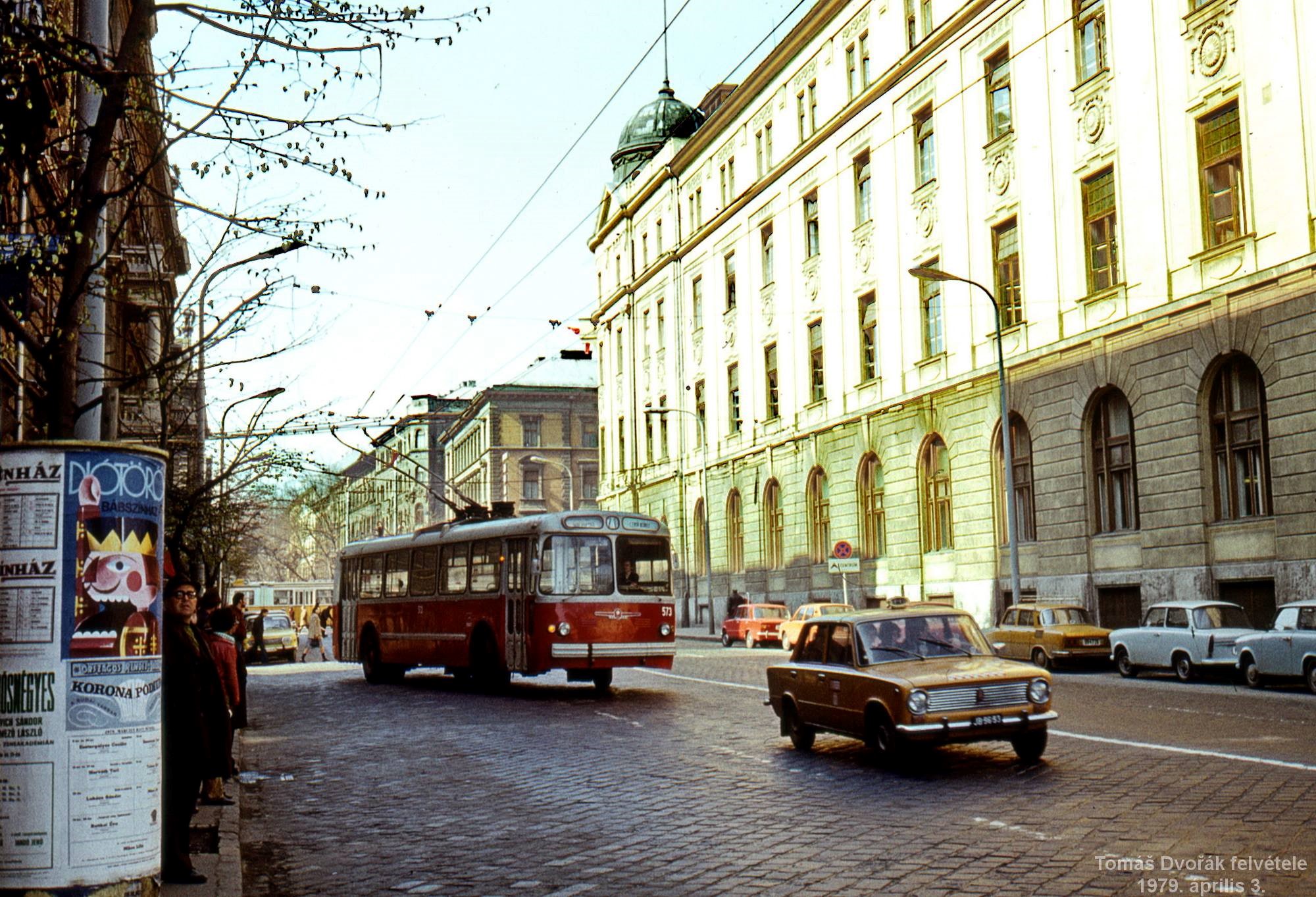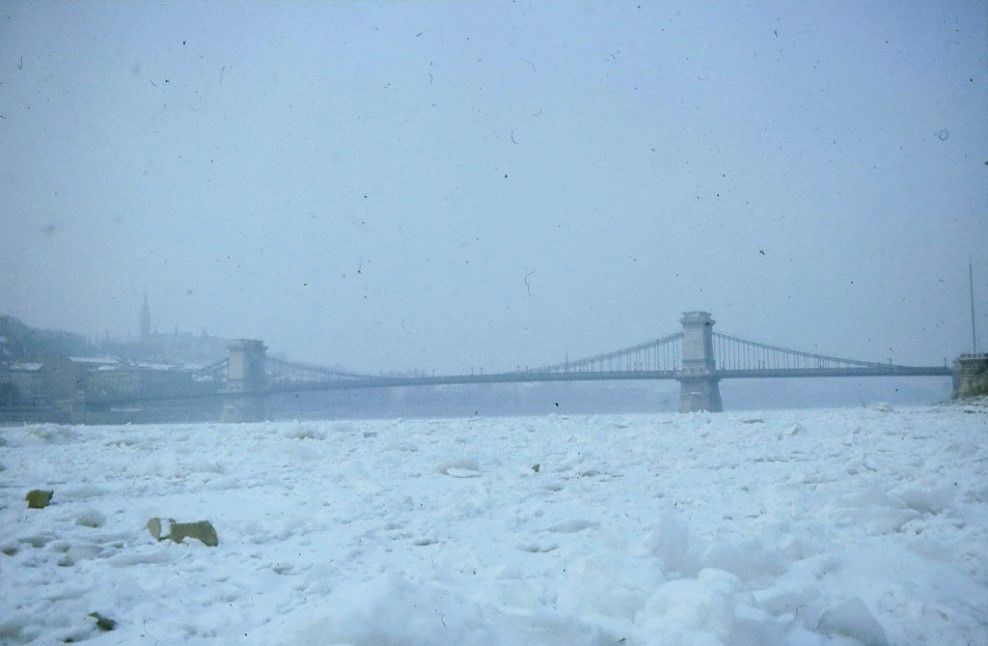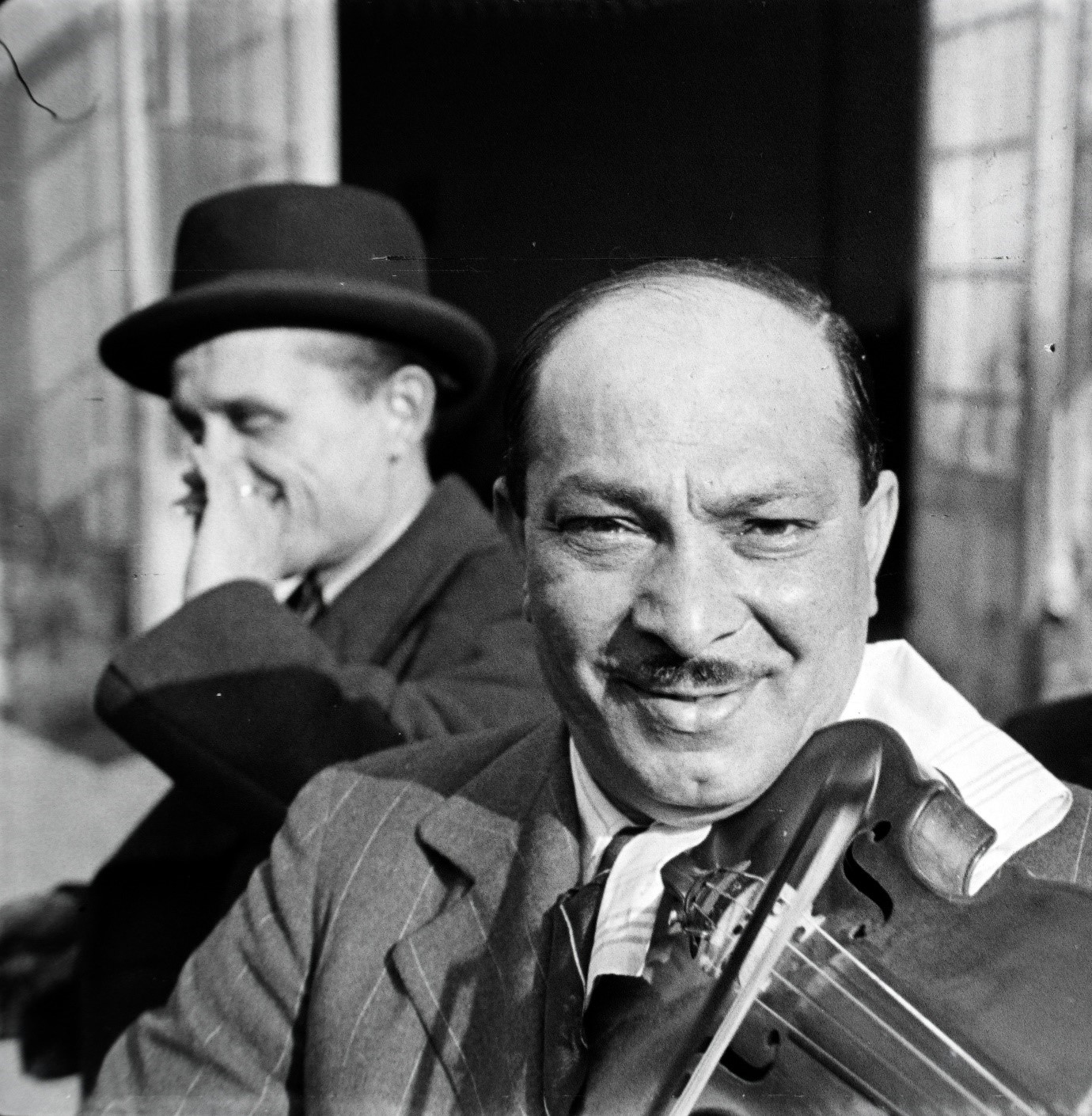'An Englishwoman's Life in Communist Hungary': Chapter 4, Part 1.
- 14 Mar 2023 5:37 PM

Now You See It, Now You Don’t and House of Cards have been included as part of the Open Society Archive dedicated to this period in the CEU. You can read a serialisation of them here on Xpatloop. You can also buy the dual-volume book on Kindle as well as in Stanfords London.
Chapter four: Courtyard and Characters
Part 1 – Moving in: new neighbours; the Danube freezes
It was sunny but frosty as we dragged our boxes out into the street. János had arrived early but Miklós was in the country teaching. My students, Ági and Kazi, came soon afterwards with their friend István in his jeep. I had begun to teach Ági and Kazi when we moved to Garay tér.
Ági taught at the College of Foreign Trade while Kazi worked for a state trading company. Both were always well dressed and reflected attitudes far more ‘western’ than other Hungarians we knew. We had bought the two floral armchairs from Rózsi-néni together with an old table, the straw-upholstered chairs and the cheese plant, and I now sat in one of the armchairs out on the pavement.
I felt slightly nervous that Rózsi-néni might have got to know that we were moving and would turn up unexpectedly.
Imre was already busy in his workshop. He put his head out around the door. ‘Moving?’ he asked.
‘Yes, she's swapping the flat,’ I answered. He nodded.
‘Up you get!’ interrupted István, ‘We'll take the furniture first and come back for the boxes.’
He took Paul with him, and I wandered back upstairs leaving Ági to watch the things on the pavement.
We already had everything outside by the time István and Paul returned. One more trip to and from Szinyei and we were ready to load the last things into the jeep. Ági left to go home while János, Kazi and I took the trolley bus to our new flat leaving István and Paul to go ahead.
It had been no easy task to manoeuvre the furniture up the spiral staircase or along the walkway. Gradually we carried up the boxes, panting clouds of moist warmth into the bitingly cold December air, our arms aching. István was limping badly, and I learnt from Paul that he had twisted his leg on the way upstairs while carrying one of the armchairs.
Kazi caught my glum look as I gazed at the crumbling walls, other flat doors around the walkway and the concrete courtyard below, our only view from the window. ‘You'll see, it'll be fine. It isn't a bad flat and this is a better area than Garay tér.’
He subscribed to Endre's view that the Garay tér area should be demolished. He and Ági lived in a huge flat opposite the Botanical Gardens on Dózsa György út, a mere five minutes' walk away from Szinyei. He had taken over the flat from his widowed father who had remarried and moved into his new wife's home. The flat was furnished with antiques and had an atmosphere of decayed elegance.

Area around our new flat Courtesy Tamás Dvorak
Kazi and István left, and Paul, János and I decided to go out and eat. It was already dark at four o'clock and we had no energy left to start unpacking more than our bedding. We had bought two foam mattresses which just fitted on the gallery, and after I had put a few plants alongside, the room seemed homely and inviting.
The following day we got up late and had just started unpacking when there was a knock on the front door - it had no doorbell. I was greeted by a woman of about sixty: ‘I'm your neighbour, Mrs.Varga’, she said. ‘If we can help in any way just come over.
Mrs. Nagy over there has a phone, she's the only person with one - we all use it,’ she said, pointing to the door on the opposite side of the courtyard on our floor. ‘Is your heating working alright?’ she asked.
‘Fine, thank you.’ I replied.
‘Good, well I'll let you carry on unpacking then,’ and with a cheery smile she went back into her flat.
Four days later we had the first heavy fall of snow. We had moved just in time once again. We had planned to travel on the Meridian train to Germany for Christmas, though this time I would return alone while Paul went on to England to do the oral part of his Ph.D. on Liszt.
It was in these last days before we left that Paul met an English composition student at the Music Academy. Laurence was twenty-one; his parents had left Hungary at the time of the '56 revolution and gone to England where he was born. One evening Paul brought Laurence home for a meal, we got on marvellously, he was witty, entertaining and we found we shared common tastes in music.
Laurence could not afford to travel home for Christmas but what bothered him more was that there had been no hot water in his flat for the past few weeks. The flats in the building had been sold to their tenants by the council, but the central boiler which provided hot water to all the flats had since broken down completely, and no-one had the money to pay for its replacement. We immediately suggested he stay in our flat until I returned at the beginning of January.
The journey proceeded as usual and although we disliked the crossing from East Germany, we were becoming inured to it. I left Braunschweig first in the new year and travelled to East Berlin alone.
Heavy snow weighed down the branches of the fir trees and the temperature was well below zero even at midday. I had a two-hour wait for the Budapest-bound train which was due to depart at ten o’clock. I had no couchette, but the first-class compartments were comfortable and usually uncrowded, so I thought I would be able to get some sleep.
I was wrong. As I sat down by the window, I realised that the temperature inside the train was the same as that outside. I kept my coat on in the overly-optimistic presumption that the heating would come on once the train began to move. Another three people joined me in the compartment and likewise began to complain about the lack of warmth.
The train pulled out of the Ostbahnhof and one of my fellow travellers extracted a bottle of cognac from his bag and passed it round. I accepted gratefully. Though I hardly ever drank spirits this did not seem the time or place to refuse.
It was a very long eighteen hours to Budapest and when I once walked to the restaurant car I found that snow which had come in through an open door had not even melted inside the train. More dramatically, I saw with total amazement that the Danube was completely frozen over at Esztergom, a cathedral town in the north of Hungary on the border with Czechoslovakia.

The frozen Danube
Laurence was waiting for me and confirmed that the Danube was also frozen in the city. Some people had walked right across though it was obviously risky. It would be another ten days before Paul returned, and as Laurence left we agreed he should call in to have baths and that we would go to a concert together a few days later.
The freezing temperatures continued, the ice on the Danube was broken by ice-breakers, and on our way home after the concert our faces burned from the stinging cold of minus twenty degrees. Paul returned with the good news not only of having got his Ph.D., but that Cambridge University Press wanted to publish a version of his thesis as a book.
Gradually we were beginning to get to know the other people in the house. It seemed that every type was represented. On the ground floor of the courtyard was Pali -bácsi, the wheelchair was his. He was probably about sixty years old, and could just manage to walk a short way with the aid of two walking-sticks.
His daily outing was to the pub on the next corner, where in the good weather he would sit in his wheelchair on the dirty pavement, frequently accompanied by an obese, one-legged gypsy woman, also in a wheelchair.
On the first floor was the caretaker. She must have been of a similar age and was a confirmed alcoholic. She was thin and loud, and was frequently to be seen staggering along the walkway, bottle in hand. Also on the first floor, immediately beneath us, was a young couple with two children.
They seemed very well off in comparison with the other residents, they had an Old English sheepdog, drove a western car and were always fashionably dressed. I could not imagine they would be staying in the house for long. I was proved right, though not in the way I had thought.
Some months after we moved in, the man was arrested, the furniture was removed by bailiffs and the dog also disappeared. Shortly afterwards the woman and the children left too. We never learned the details of the case.
On our own floor we knew more people. There was a gypsy family, a middle-aged couple with already grown-up children. The man, also the worse for drink, was a restaurant violinist. Occasionally other gypsy musicians would appear carrying violins, clarinets and double-basses and the sound of their practising would echo around the courtyard.

Gypsy musicians Courtesy Fortepan/ Lajos Miklós
Next door to them was another couple, the Molnárs, in their fifties, quite middle-class, with a weekend house out of Budapest near a river where the man would regularly go fishing. Then came Mr. and Mrs. Varga, ourselves, and on the other side was an elderly Jewish couple. The husband had been ill and had difficulty walking and talking.
We first became aware of him one day while we were sitting listening to a record of Vangelis's ‘Chariots of Fire’. A slow-motion vision of an athlete shuffled past our net-curtained windows. They had obviously been told he should exercise, so every afternoon his wife dressed him up in a tracksuit, running shoes and peaked cap, and he walked at a snail's pace two or three times around the walkway.
His wife followed, alternately encouraging him or exchanging gossip with her second-floor neighbours. We ever after referred to him as ‘Chariots of Fire’.
Next to this couple was Ági-néni around sixty, who lived alone. She was also Jewish and had apparently been deported during the war; she had never recovered. Although she was extremely friendly and seemingly normal, she kept several plastic roses planted in soil in pots outside her door.
Not only did she water them assiduously, I also saw her ‘feed’ them with paprika powder. She could also be observed in mini skirt and snow boots on her way to the local shop in the middle of July.
The next flat belonged to the couple with the telephone, and the door on the far opposite side of the courtyard to us belonged to a woman in her thirties, rough but good-hearted, with three poorly-dressed, though polite children.
Mrs. Varga once whispered that not only had she never married, but each of the children had a different father. Certainly, they all looked very different.
We had still not got around to registering ourselves in the new flat with the council. It was to this end that Paul set off one day in January. Standing on the street corner of the council offices, was a large, smartly dressed gypsy looking around searchingly. As Paul approached, the gypsy walked up to him, ‘Do you know where Rigó utca is?’ he asked.
‘I don't know,’ Paul replied. ‘Unfortunately, I'm a foreigner.’
The gypsy looked in bewildered amazement. ‘Unfortunately? Unfortunately?!’ he burst out, laughing.
Paul's word order had become muddled, he had meant to say, ‘Unfortunately, I don't know...’ The gypsy was still laughing as Paul entered the building.
Click here for earlier extracts
Main photo: Szinyei Merse Pál utca - Courtesy Fortepan/ Szilvási Hagyaték





























LATEST NEWS IN community & culture